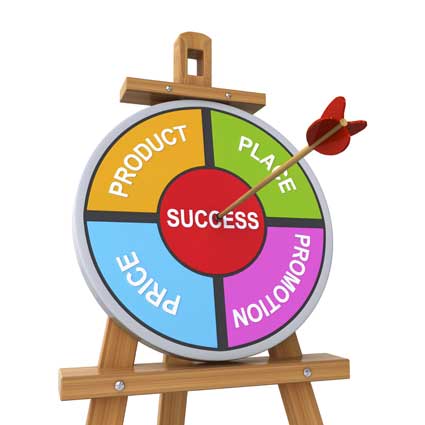Primarily internally driven, enthusiasm and motivation are closely linked to a salesperson's own personal development.
| Enthusiasm |
Often thought of by sales professionals as the level of perceptible energy a person exhibits as he goes about his business, enthusiasm is closely related to a person's genuine or expressed excitement. Because it is commonly thought of as perceptible energy, enthusiasm is frequently missed by business owners when interviewing older workers. Older workers are normally well-seasoned and mature and can sometimes lack the schoolboy excitement commonly known as enthusiasm. If you are a business owner, however, it is a mistake on your part to read older workers as not enthusiastic simply because they are not bouncing off of the wall in the interview or in their everyday activities on the job once hired.
For mature workers, enthusiasm is often communicated with nonverbal expressions of joy, accommodation, helpfulness, and a genuine concern for the client. All of these characteristics are assets to your company and your sales team, so you should never discount an older salesperson because she or he is calmer and more collected and laid-back than younger counterparts.
In younger workers, high energy can be mistaken for enthusiasm when in fact it can be an indicator of more serious issues that can hinder your sales team's productivity. For example, a worker who exhibits high energy in the interview could be bipolar, narcissistic, or struggling with an attention deficit disorder. While people troubled by these concerns need jobs and may be able to perform well in your sales position, it is important for you as the employer to know if these issues trouble your staff so that you know whether its members are properly taking care of their health so as to be productive and contributing team members.
| Motivation |
Motivation has to do with what propels a person forward in the world. Normally thought of as an internally driven characteristic, motivation actually is a culmination of several things that work in tandem to drive a person. Also known as "personal drive," motivation helps us get up and get going each morning.
The individual's own personal (or spiritual) development is a key driver of motivation and enthusiasm because most of the underlying factors can be easily understood in this type of framework. To better understand what is meant here, we will consider the mind, the will, and the emotions, each separately.
When searching for the perfect team member for your sales staff, you will want to consider each person's mental condition and abilities, education level, communication level, and attentiveness. The mental condition includes mental health; does your prospective salesperson have a history of mental health issues? Is he or she on medication for any disorder? You will want to especially include the more common ones mentioned above because, in the pool of qualified applicants, you may find some of your best candidates have a disorder of some type. Why is this the case? Simply put, some of the best and the brightest are troubled in their minds or suffer in a related way.
For example, it is well-known in the mental health community that bipolar personalities are often extremely bright and talented people with exceptional scores on intelligence quotient (IQ) tests. They are normally ahead of their colleagues in what is transpiring in any given situation, and they are usually three steps ahead of others when thinking through a situation. These are all good characteristics for a competent sales team. However, such people also are known to be very manipulative and sometimes habitual liars, characteristics you may not be prepared to cope with or require your staff to handle.
For example, my personal Myers-Briggs test score placed me in the Introverted, Intuitive, Feeling, Perceiving (INFP) personality category. In the world of writing, this is a perfect match for my profession because my work requires me to look inward, be intuitive, consider the feelings of myself and others, and pay attention to my perceptions. This personality type does not lend itself to the best of sales positions, although I can be quite persuasive because of my professional skills and my level of development in these areas. Even so, an INFP is not the best door-to-door salesman. For that, you would need an ENFP, someone who is more developed as an extrovert.
The will is the decision-making center of the soul. It functions in the mind, but it is also a result of the heart or spirit of a person. Everyone has heard the expression, "Don't break the child's will." Every parent knows there is a fine line between disciplining your children for their future good and breaking their will or their spirit.
In modern psychology and in child-rearing books, you often will see an instruction to give correction by starting the conversation with a compliment, telling the person what he or she is doing right. The modern thought on this is to compliment on each side of the correction. I call it "the bomb sandwich," or compliment, bomb, compliment.
The reason it works is because it is considerate of the person receiving the critique. It considers the person's soul or will. It is a process that helps build the person up without crushing her or his motivation to continue and contribute.
The will is what helps us make plans and decisions, stick to a project in tough times, and see it to the end. The will helps us complete what we begin; it helps us reach our goals as well as set them. It is the will that keeps the "fire in the belly" of your salespeople.
The emotions are the third part of the soul that operate primarily from the mind but also are affected by physical realities. If your sales team members are not healthy in their emotions, they will not produce well and their decisions will be flawed. You have heard the expression, "Never make a life decision in the middle of a crisis." We all know this is the best advice for healthy decisions because when you are in a crisis, your emotions and their attending thoughts are reactionary. Reactionary decisions are usually not the best decisions.
The biggest risk you take in hiring an emotionally unbalanced person or someone in crisis is that his or her decision-making ability concerning the job he or she is hired to do will not be at its best and could hurt your company. Because most people are adept at concealing their problems, there is no surefire way to gauge this part of the soul. It is common knowledge that most people have a public face and a private face; some even say that most have a work face and a social face. In other words, you cannot trust that what you see is what you will get by assessing what you are told in the interview.
Motivated to Sell
| Money, Money, Money, Money ............. Money ! |
Even among the most generous souls, you will hear that "money is a necessary evil." Indeed, we work and live in a world that runs on money. Money is exchanged routinely for hours, days, weeks, or years out of your life. Top salespeople have long figured out that work is an exchange and they want the highest exchange rate for their irreplaceable life's time.
Few salespeople are purely motivated by money, but the top performers are more motivated by money than anything else. They see money as a means to an end; it helps them get what they want in life. Highly motivated salespeople want a lot in life, so they realize they need lots of money and they usually do not mind working hard to get it. A salesperson who is lazy or never wants to put in the extra hours will never be a high performer and will likely be broke.
From a business perspective, it is important to understand the relationship between money and sales for the average salesperson. If you want a salesperson to perform at his or her best, tie the performance to the money. Never pay a salesperson by the hour unless you just want a clerk. Tandy Corporation is a great example of that phenomenon. In the late 1980s, I worked my way through college managing a Radio Shack store in my college town. At that time, Tandy paid all salespeople on a minimum wage rather than commission. If you broke the rate of minimum wage with your commission rate, then you received only the commission. Unless you wanted to work for minimum wage, you had to bust it to make a good salary. The long-term staff members in our store were hustlers and typically logged 60-plus hours each week. Today, Radio Shack has all but eliminated the commission pay from their employees, and when you go into the stores, you can tell that by the way the staff members treat you. If you want salespersons to sell, then put plenty of money in the formula for them.
| Sex Appeal |
Sometimes business owners overlook the sex appeal factor that motivates some salespeople. Consider the car industry and the numbers of sales representatives who hustle each week. Often it is money, but for some it is sex appeal that motivates them to put in the long hours.
Ask yourself these questions:
-
Does the product make the salesperson look sexier?
-
In the general public, does a man or woman have greater sex appeal by being a part of your industry? For example, consider boat sales representatives.
-
Does selling your product make the sales representative enough money to increase his or her sex appeal among possible potential mates?
| Status |
Status motivators may be something such as a golf club membership or a summer home in the Hamptons. Just having the summer home makes the salesperson of higher status than colleagues or competitors. Although popularly shunned by the political correctness of today's social climate, status symbols and motivators are not strange or hidden in the world of sales professionals. They may find themselves discussing it only as a locker room-type comparison, but it is still a strong motivator even today. It is foolish to think otherwise.
| Stability and Family |
Stability and family are both motivators that primarily move women. Family-oriented and family-centered men also are motivated by the stability factor when considering your new sales position. For this reason, you must ask yourself how stable you want your company and your sales staff to be. The more stable you want your company to be, the more you will want to look for stability motivated individuals. Professionals with young children are usually stability motivated because they have a lot of expenses and a long road to go before they can take any financial risks.
The more stable your sales team, the more stable your company. Individuals motivated by stability will be both more productive and more loyal. They will put in the extra work as needed and create the least amount of strife in the company and the team.
Since the 1990s, the workforce and the corporate levels in companies have been through the "change" transformation of corporate culture. This ideology basically says that stability is a hindrance to innovation. However, as a business owner, you want your engineers and your designers to be creatively innovative, a characteristic that is not needed so much by the sales team. When selecting team members that will make your company a winner, consider the open-minded candidates motivated by stability and family. Their openness to new ideas and ways will help them to keep your company competitive, while also helping your company to become stable.































